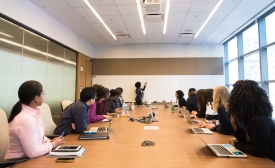dfat

Diplomatic spouses and partners offer powerful PD resources, write Michael Edward Walsh and Britt Spyrou.

Australia's frequent leadership changes pose challenges to its global standing. All the more reason to make soft power a central element in its foreign policy.
It is without a doubt pleasing to see that DFAT is on its way to progressing and further developing its digital diplomacy programmes, however, it is still a long way away from meeting the requirements it needs to influence people around the world, and increase the efficiency of its diplomats and enable them to adapt to a rapidly evolving technology and diplomatic space.
General George Brandis and a senior DFAT official have defended Julie Bishop’s #fashiondiplomacy as a “huge asset” to Australia. [...] Senator Brandis told the hearing it was “integral” to the Foreign Minister’s role to promote Australian interests and businesses in response to questions from Labor senator Kimberley Kitching. “The fashion industry in Australia, I’m told, contributes $12 billion to the economy every year and employs 220,000 people,” Senator Brandis said.
It wouldn't be senate estimates without senior Department of Foreign Affairs and Trade officials having to justify the presence of a $6300 ping-pong table in the 'InnovationXchange' ideas hub.[...] "Senator you call it a ping pong table, I call it a meeting table," he said. "It is used all day for meeting and not for ping pong. It is actively used throughout the day and sits 10 or 12 people around it."







